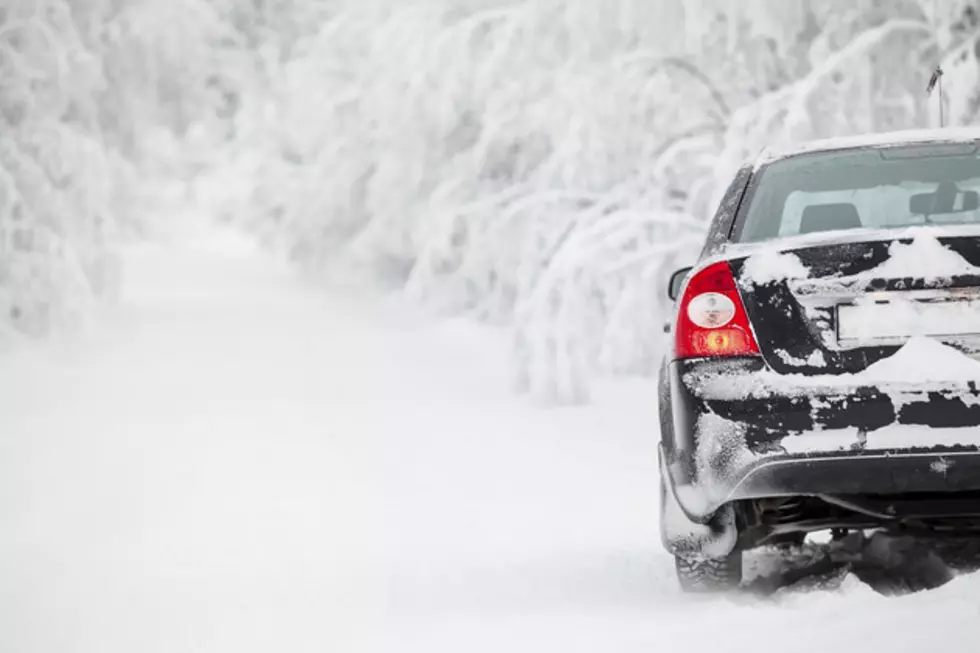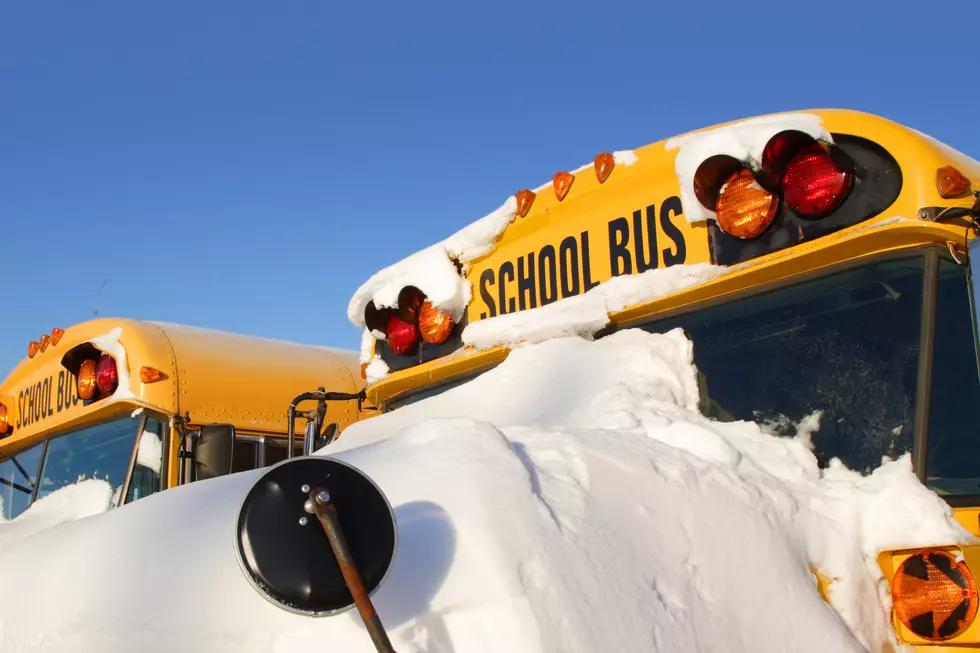
Are You Ready For Winter Storm Juno?
As we brace for Winter Storm Juno, the first significant storm of the season, we want to make sure that all of our readers are prepared for the worst. Remember, it is best to get ready for storms before they happen. And this meteorological event could be here as early as Monday afternoon, here's a reminder of what FEMA and the American Red Cross say you should have on hand.
Water
Keep plenty of water on hand. If you don't want to go out and buy it, store your water in plastic containers like soft drink bottles. Children, nursing moms and ill people will need more.
- Store a gallon of water per person per day (two quarts for drinking, two for food prep and sanitation.)
- Keep at least a three-day supply of water on hand for each person in your home.
Food
You'll want to keep at least a three-day supply of non-perishable food on hand. This means avoid things that need to be refrigerated, prepared or cooked. If you need to heat food, use a can of sterno.
Add the following foods to your Disaster Supplies Kit.
- Ready-to-eat canned meats, fruits and veggies
- Canned juices, milk and soup
- Staples such as sugar, salt, pepper
- High energy foods like peanut butter, jelly, crackers, granola bars and trail mix
- Vitamins
- Foods for babies, the elderly or those on special diets
- Comfort and stress foods like cookies, hard candy, sweetened cereals, lollipops, instant coffee and tea bags
First Aid Kit
The American Red Cross recommends assembling a first aid kit for your home and one for each car. It should include:
- Sterile adhesive bandages in assorted sizes
- 2-inch sterile gauze pads (4-6)
- 4-inch sterile gauze pads (4-6)
- Hypoallergenic adhesive tape
- Triangular bandages (3)
- 2-inch sterile roller bandages (3 rolls)
- 3-inch sterile roller bandages (3 rolls)
- Scissors
- Tweezers
- Needle
- Moistened towelettes
- Antiseptic
- Thermometer
- Tongue blades (2)
- Tube of petroleum jelly or other lubricant
- Assorted sizes of safety pins
- Cleansing agent/soap
- Latex gloves (2 pair)
- Sunscreen
Non-prescription drugs
- Aspirin or nonaspirin pain reliever
- Anti-diarrhea medication
- Antacid (for stomach upset)
- Syrup of Ipecac (use to induce vomiting if advised by the Poison Control Center)
- Laxative
- Activated charcoal (use if advised by the Poison Control Center)
Tools and Supplies
- Mess kits or paper cups, plates and plastic utensils
- Emergency preparedness manual
- Battery operated radio and extra batteries
- Flashlight and extra batteries
- Cash or traveler's checks, change
- Non-electric can opener, utility knife
- Fire extinguisher: small canister, ABC type
- Tube tent
- Pliers
- Tape
- Compass
- Matches in a waterproof container
- Aluminum foil
- Plastic storage containers
- Signal flare
- Paper, pencil
- Needles, thread
- Medicine dropper
- Shut-off wrench, to turn off household gas and water
- Whistle
- Plastic sheeting
- Map of the area (for locating area shelters)
Sanitation
- Toilet paper, towelettes
- Soap, liquid detergent
- Feminine supplies
- Personal hygiene items
- Plastic garbage bags, ties (for personal sanitation)
- Plastic bucket with tight lid
- Disinfectant
- Household chlorine bleach
Clothing and Bedding
It is recommended that you include at least one complete change of clothing and footwear per person.
- Sturdy shoes or work boots
- Rain gear
- Blankets or sleeping bags
- Hat and gloves
- Thermal underwear
- Sunglasses
Special Items
It is important to remember family members with special needs, such as infants and the elderly or disabled persons.
For Baby
- Formula
- Diapers
- Bottles
- Powdered milk
- Medications
For Adults
- Heart and high blood pressure medication
- Insulin
- Prescription drugs
- Denture needs
- Contact lenses and supplies
- Extra eyeglasses
Entertainment
- Games
- Books
Important Family Documents (keep these in waterproof, portable containers)
- Will, insurance policies, contracts, deeds, stocks, and bonds
- Passports, social security cards, immunization records
- Bank account numbers
- Credit card account numbers and companies
- Inventory of valuable household goods
- Important telephone numbers
- Family records (birth, marriage, death certificates)
Suggestions and Reminders
- Store your emergency kit in a convenient place so everyone in the family knows where it is. Keep a smaller version of the kit in the trunk of your car.
- Keep items in airtight plastic bags.
- Change your stored water supply every six months so it stays fresh.
- Rotate your stored food every six months.
- Re-think your kit and family needs at least once a year. Replace batteries, update clothes, etc.
- Ask your physician or pharmacist about storing prescription medications.
More From WBSM-AM/AM 1420




![Lean on Us During a Storm [PHIL-OSOPHY]](http://townsquare.media/site/518/files/2020/12/RS22163_GettyImages-502765062.jpeg?w=980&q=75)




